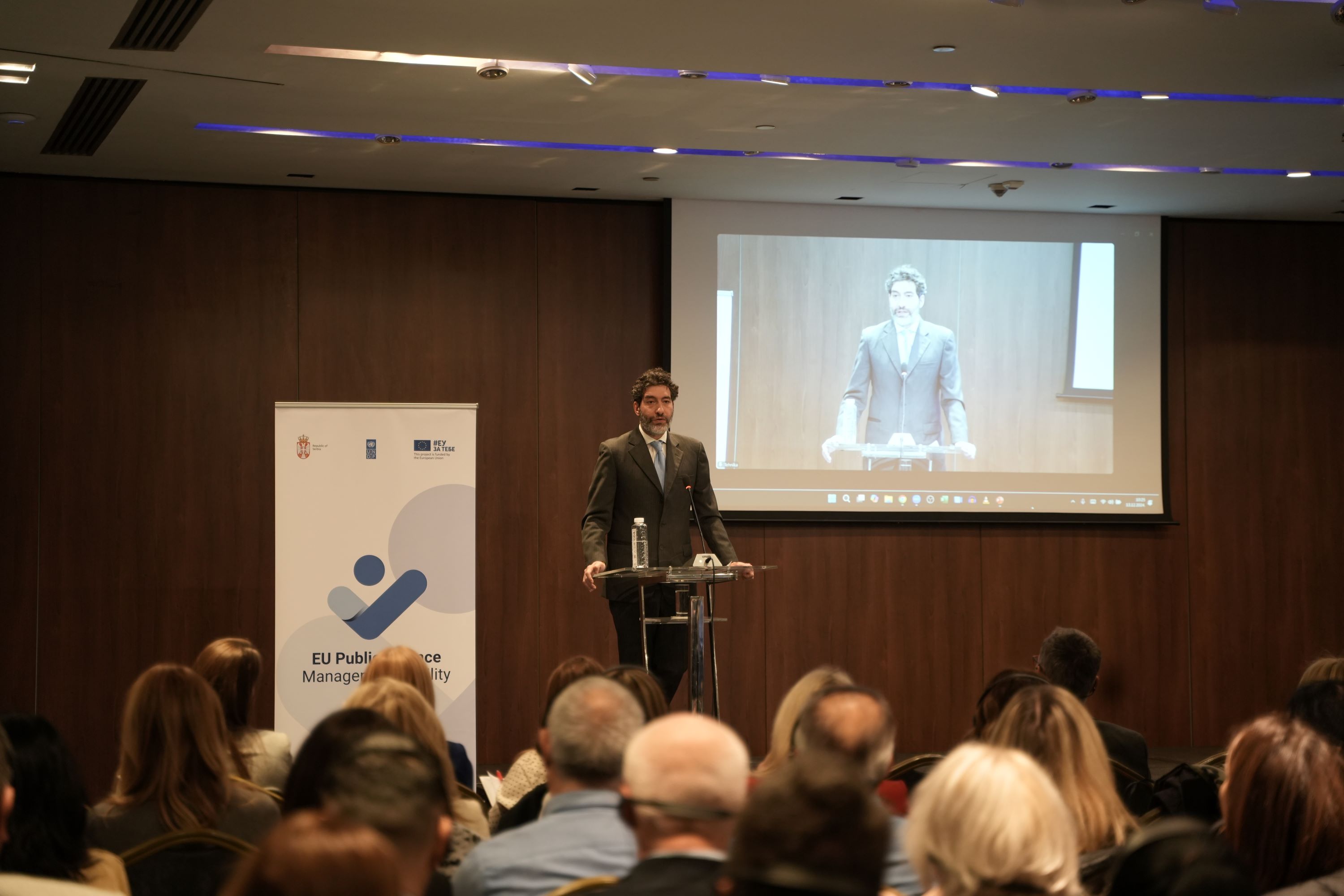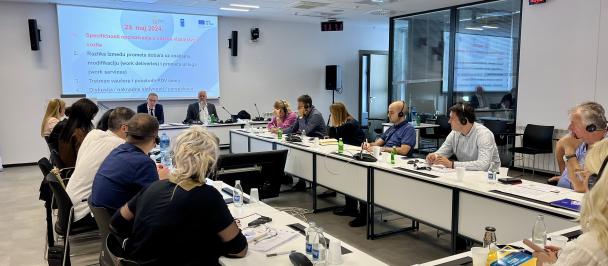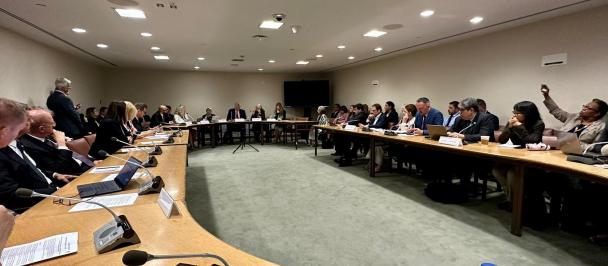
Belgrade, 13 December 2024 – More than 300 internal auditors employed in ministries, local governments, public companies and other institutions today attended a training event on changes in international internal audit standards and their application in Serbia. The event was organised by the Central Harmonisation Unit (CHU) of the Ministry of Finance of the Government of Serbia and United Nations Development Programme (UNDP) with the support of the European Union.
At the event, Spomenka Wurzburger, Assistant Minister in charge of the Central Harmonisation Unit at the Ministry of Finance, emphasised the importance of internal audits as a crucial support for management in ensuring good governance.

Spomenka Wurzburger, Assistant Minister in charge of the Central Harmonisation Unit at the Ministry of Finance
“Much of what the standards prescribe we have already implemented in practise, but we have to adapt all regulations, manuals and training plans to them, so we will have a lot of work next year revising documents and training employees,” said Wurzburger.
“We support improving the knowledge and skills of internal auditors so that they can better fulfil their important role in public administration by ensuring the transparency of operations and the responsible and lawful handling of public funds,” said Fabrizio Andreuzzi, UNDP Deputy Resident Representative in Serbia. He explained that this activity is part of a broader initiative aimed at supporting the Serbian government in harmonising public financial management with EU standards and best practises.

Fabrizio Andreuzzi, UNDP Deputy Resident Representative in Serbia
Francis Nicholson from the Institute of Internal Auditors presented the most important changes to the global standards and explained that in our country in 2025, considerable efforts will be required to revise the documents and train employees so that they can be implemented smoothly. One of the main challenges Nicholson sees is strengthening the collaboration between internal auditors and top management, which is essential for the success of internal audits.
The global standards for internal auditing developed by the Institute of Internal Auditors serve as a framework for internal auditing in all sectors and countries. The updated standards were published in early 2024 and their implementation will begin in January 2025. The new standards cover important aspects of internal audit and include detailed guidance on new risk areas such as cybersecurity, sustainability and third-party relations.
This training was organised as part of the “EU for Public Finance Management in Serbia” project, funded by the European Union and implemented by the United Nations Development Programme in partnership with the Centre of Excellence in Finance (CEF) and the Ministry of Finance of Slovakia.

 Locations
Locations

















